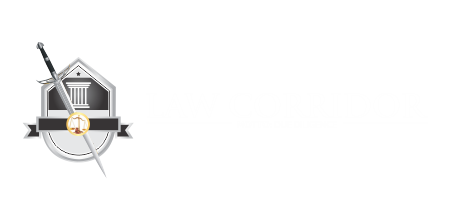THE UNITED STATES DESIGNATION OF NIGERIA AS A “COUNTRY OF PARTICULAR CONCERN” AND THREAT OF MILITARY ACTION – OUR POSITION
Law Corridor, as a Law Firm providing services for clients (including foreign investors, multinationals, Nigerian corporates) notes the recent announcement by the Government of the United States of America designating Nigeria as a “Country of Particular Concern” (CPC) under the U.S. International Religious Freedom Act of 1998, as well as the accompanying public commentary referencing the possibility of United States military action in Nigeria, should corrective measures not be taken.
On 31 October 2025, U.S. President Donald J. Trump announced Nigeria’s designation as a “Country of Particular Concern” (CPC).
The designation applies to nations deemed to commit or tolerate “particularly severe violations of religious freedom,” including torture, prolonged detention without trial, forced disappearance, and other grave violations of liberty or security on account of religion.
While we understand the designation itself does not immediately impose sanctions, it provides a basis for a spectrum of measures ranging from diplomatic pressure and aid suspension to potential economic sanctions.
Recent U.S. commentary goes further to suggest the possibility of unilateral U.S. military action in Nigeria should the Nigerian State fail to address alleged violations.
OUR POSITION
1. Sovereignty
Nigeria is a sovereign nation entitled to protection under international law and the United Nations Charter. The principle of non-intervention strictly prohibits military action against a sovereign nation without its consent or authorisation of the United Nations Security Council.
Any unilateral military action against Nigeria without such legal basis would be unlawful and constitute a violation of international legal norms. Nigeria retains the right and responsibility to defend its territorial integrity and constitutional order.
“We, therefore, condemn the killings occasioned by insecurity within the territorial definition of Nigeria by non-state actors in the form of banditory, acts of terrosism and other violent conducts that further created the insecurity fears in the country.”
2. Credibility Allegations
The concerns raised by the United States appear to be rooted in allegations of large-scale persecution of Christians in Nigeria. However, informed analysis reflects that Nigeria has endured complex and multifaceted security challenges over the past decade, including terrorism, community-based violence, banditry, farmer-herder conflicts, and economic-resource disputes.
These security crises have claimed lives across religious, ethnic, and linguistic lines. Both Christian and Muslim communities, along with numerous ethnic minorities, have been victims of insurgency and criminal violence.
While Nigeria must continue to strengthen the rule of law, protect freedom of religion, and uphold human rights, the assessment of the present situation must be balanced and grounded in Nigeria’s lived security realities.
As a Nigerian law firm serving both domestic and international clients, including investors, multinational corporations, and regulated entities, Law Corridor notes with deep concern the potential reputational and economic implications of this designation for Nigeria.
Nigeria’s private sector, from multinationals to SMEs, may also face increased risk scrutiny, trade challenges, supply-chain restrictions, and compliance exposure.
We, therefore, condemn the killings occasioned by insecurity within the territorial definition of Nigeria by non-state actors in the form of banditory, acts of terrosism and other violent conducts that further created the insecurity fears in the country. In this regard, we emphasize and call for the need for immediate diplomatic engagement to prevent any deterioration in international commercial relations.
Our Position and Appeal
Law Corridor aligns with all lawful and peaceful efforts of the Federal Government of Nigeria, diplomatic stakeholders, and civil society actors to engage constructively with the United States, correct any inaccurate perceptions, demonstrate Nigeria’s commitment to human rights, and strengthen national security responses within the confines of the Nigerian Constitution and international law.
We urge:
The Government of Nigeria should, as a matter of necessity, deploy high-level diplomatic engagement, transparency, and security reforms where necessary.
The United States Government should respect Nigeria’s sovereignty and collaborate cooperatively on security and human-rights improvement frameworks.
Conclusion
Nigeria has a longstanding commitment to religious freedom and peaceful coexistence. Our challenges are real, and our solutions must be sovereign, legitimate, and globally supported, not imposed.
Law Corridor stands with the people and Government of the Federal Republic of Nigeria in defending our sovereignty, preserving national dignity, and ensuring a stable and secure environment for democracy, human rights, and economic prosperity.
We call for principled diplomacy, mutual respect, and constructive partnership in addressing Nigeria’s security challenges without compromise to international law or national sovereignty while equally commending the Commander-in-Chief of the Nigerian Armed Forces to direct the newly appointed Service Chiefs to work the talk towards dealing with the criminal elements and bandits towards restoring security sanity in the nation.
Signed:
- Henry Kelechukwu Eni-Otu | Managing Partner
- Ajibola Bello | Deputy Managing Partner
- Pelumi Olajengbesi | Senior Partner
